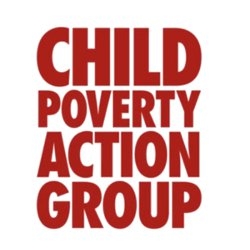
Child Poverty Action Group (CPAG) says that urgently removing Sections 176, 177, 178 from the Social Security Legislation Rewrite Bill and extending the In-Work Tax Credit portion of Working for Families to all children irrespective of their parents’ hours of work are critical moves an incoming Government must make to ensure the wellbeing of all children in New Zealand.
CPAG applauds Newshub journalist Lisa Owen’s important expose of the harmcaused by the Ministry of Social Development (MSD) imposing sanctions on sole parent support recipients who don’t name a father.
Benefit sanctions are financial repercussions that occur as a result of non-compliance with the obligations that the system imposes on a benefit recipient. A sanction that reduces the sole mother’s benefit by $22 per child for not naming a father is particularly punitive, and while the MSD aim is to make liable fathers pay their child support, it instead reduces the support the mother receives for her children.
This punishment increases by a further reduction of $6 per child for continued failure to comply.
CPAG says that applying the removal of a basic need, treating it as a privilege, is willful systemic abuse.
According to Associate Professor Mike O’Brien, CPAG social security spokesperson, sanctions do nothing but cause harm – and the children bear the brunt.
“The MSD says it has no evidence that sanctions work. Given the importance attached to evidence-informed policy, why then do we continue to apply sanctions? What we do know is that they make life worse for these children and their mothers.”
“Punishing the children by removal of their livelihood is not a way to support the mothers – inevitably it makes a difficult situation much worse,” says O’Brien.
“Often sanctions result in loss of benefit entitlements entirely, and we don’t know what happens to these people. Are they in well-paid jobs? Or are they confined to the ranks of working poor, or do they have no income at all?
“Information about where they go in between, or the impacts upon their children is missing.
“What we are seeing is increased poverty in New Zealand, high demand for food parcel services that charities are struggling to keep up with. This is likely a consequence of sanctions and families moving off benefits and into much poorer situations.
“We only know for sure what the Superu and the Household Incomes Report report tells us, and that is the rate of return to a benefit among sole parents is high, and the Household Incomes report tells reveals a huge percentage of all New Zealand’s children are in poverty.”
Associate Professor Susan St John says many of the families affected have the punishment compounded because they are denied the full Working for Families entitlement.
“Not only do they miss out on a portion of their children’s financial support because of being punished for not naming a father, but they are being punished for being classified as non-working, and lose crucial tax credit support,” says St John.
“This is at least $72.50 per week that could go along way to alleviating poverty for the worst off children.”
A sole parent is expected to work a minimum of 20 hours a week and be off a benefit to qualify for the payment, while a couple is expected to work at least 30 hours between them.
“Between sanctions and paid work hours criteria tied to children’s payments, we have a system that directly discriminates against sole parents, and mothers in particular. What kind of society are we to allow this harsh punishment to continue?”





The penalty was increased from $22 per week for EACH CHILD where the non custodial parent was unnamed to $28/WK/child around 2004/5.
Prior to this increase msd sent investigator’s to interview the 21000 sole parents being penalised. The investigators suggested to these clients that further penalties might follow, such as denying food grants in the future.
In the past being threatened by an ex specifically around naming him (her) was not considered justification to with hold the non custodial parents name.
Comments are closed.